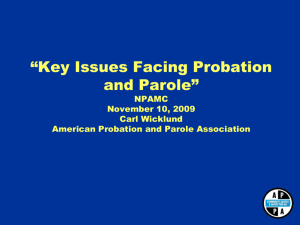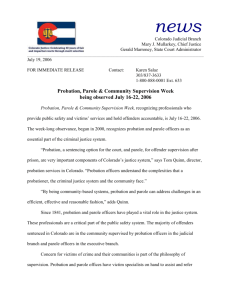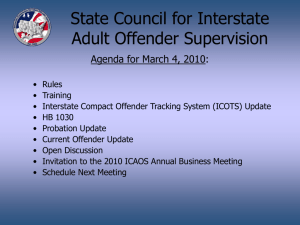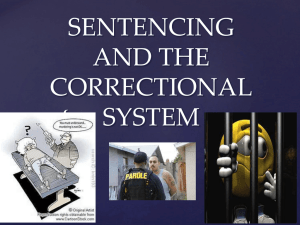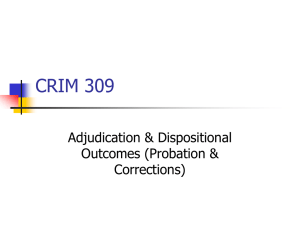news - Colorado State Judicial Branch
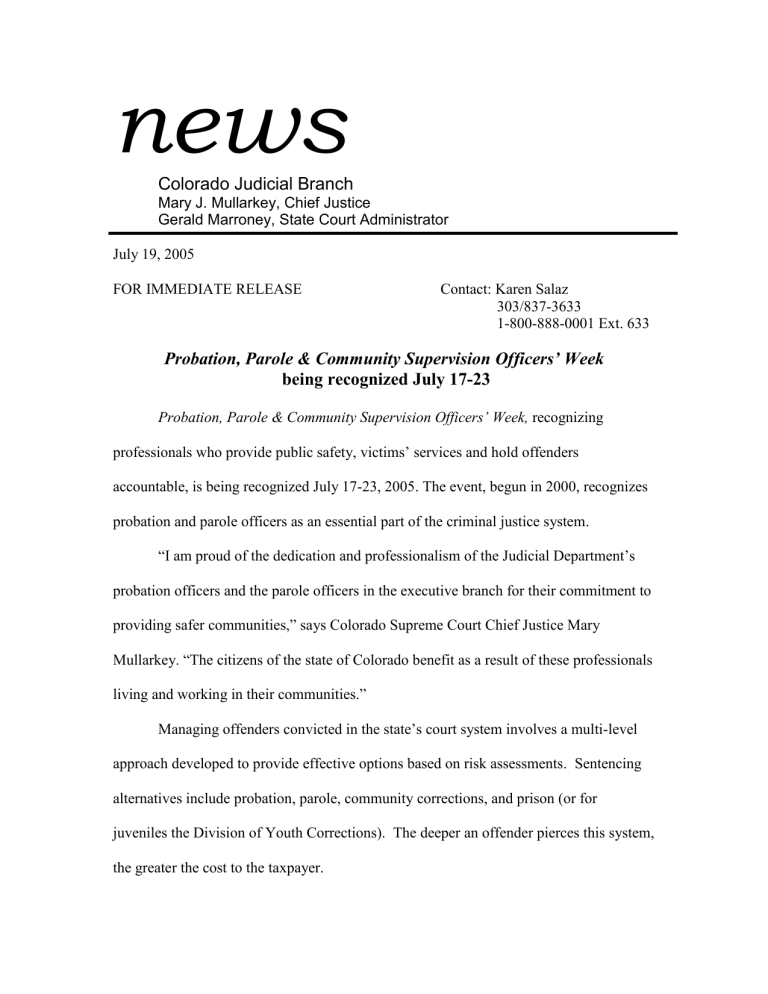
news
Colorado Judicial Branch
Mary J. Mullarkey, Chief Justice
Gerald Marroney, State Court Administrator
July 19, 2005
FOR IMMEDIATE RELEASE Contact: Karen Salaz
303/837-3633
1-800-888-0001 Ext. 633
Probation, Parole & Community Supervision Officers’ Week
being recognized July 17-23
Probation, Parole & Community Supervision Officers’ Week, recognizing professionals who provide public safety, victims’ services and hold offenders accountable, is being recognized July 17-23, 2005. The event, begun in 2000, recognizes probation and parole officers as an essential part of the criminal justice system.
“I am proud of the dedication and professionalism of the Judicial Department’s probation officers and the parole officers in the executive branch for their commitment to providing safer communities,” says Colorado Supreme Court Chief Justice Mary
Mullarkey. “The citizens of the state of Colorado benefit as a result of these professionals living and working in their communities.”
Managing offenders convicted in the state’s court system involves a multi-level approach developed to provide effective options based on risk assessments. Sentencing alternatives include probation, parole, community corrections, and prison (or for juveniles the Division of Youth Corrections). The deeper an offender pierces this system, the greater the cost to the taxpayer.
This multi-level criminal justice system allows state courts flexibility in the type of sentence an offender is given based upon his/her threat to public safety. In fiscal year
2004 the Colorado Judicial Branch’s probation department was responsible for supervising 50,427 offenders (42,013 adult and 8,414 juvenile). This means most of the state’s individuals under the supervision of the criminal justice system were able to serve their sentences in the community, where they could continue to work to pay restitution, pay taxes, support their families and get their lives back on track.
The primary goals of probation are to hold the offender accountable, to support the victims of crime, and to assist the offender in changing his or her behavior or life circumstances in a way that will keep the offender from committing any further crimes.
“Probation officers have my enduring gratitude and appreciation,” adds
Mullarkey. “It takes a special combination of skills and hard work to be an effective probation officer. The public needs to understand the importance of probation as the frontline of corrections; its success defines the level of safety in our communities.”
This information is provided as an e-mail service of the Colorado State Judicial Branch, Office of State Court Administrator, 1301
Pennsylvania Street, Suite 300, Denver, Colo. 80203. To discontinue this service or update your e-mail address, please respond to this message with your name, contact information and any comments.

